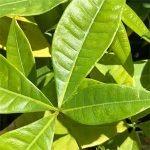Fruit Tree Nurseries, Nut Trees, Berry Plants for sale from specialist Nurseries include a wide range Citrus, Stone fruit and Nut Trees. Dwarf fruit trees are also widely available to buy online.
Mail order fruit trees are sent either as bare root trees in winter to spring or as balled or potted trees year round. Larger types and some tender varieties may not be available by mail order.
Fruit Tree and Nut Tree Nurseries (and Berry Plants) are available to buy online from a range of nurseries, and are increasingly popular, both as commercial crops and in the home garden. With varieties suitable for climates across the continent along with new dwarf varieties suitable for smaller properties, or for growing in tubs or planters it is now easier than ever to grow fruit trees.
Before Buying Mail Order Fruit Trees
It is great to order fruit trees by mail, however preparation for planting is essential. Quality fruit trees are not cheap, so prepare for planting before you buy.
- Prepare soil well before planting and consider installing in ground irrigation.
- Netting to prevent loss though birds is desirable with some varieties.
- Some fruit trees need a pollinator, so talk to your nurseryman before purchasing.
- Fruit trees can be purchased from nurseries and espaliered along a wall or fence in areas where space is limited, or to obtain a formal effect.
Site selection for Fruit Trees.
- Most fruit trees require lots of sun and a fertile well drained soil, of course exceptions exist.
- Olive trees seem to be able to cope with poor soils.
- Some fruit trees like a little shade.
- Read up on the varieties of fruit trees you intend to plant on mail order and online nursery catalogues before you purchase.
Fruit Tree and Nut Tree Selection.
- You can’t grow every fruit tree and nut tree in every climate or every soil, some fruit trees are tropical some require a cool climate, so purchase the type of fruit tree that suits your climate best.
- This will differ even with in species, for example the Bacon Avocado will do better in cool climates than some other varieties.
- However, if the situation and climate is a little marginal, then maybe give it a go.
- Look around the district and see what fruit trees others are growing, consult your local nursery, its a good indication of what will work.
Size of fruit trees and Dwarf Fruit and Nut Trees
It is advisable to consider the size that the tree will grow to eventually. Make sure you have enough room for the mature tree. If the space that have is limited, consider planting dwarf fruit tree varieties, dwarf nut trees or espaliered fruit trees.
Fruit Tree Care.
Planting out a Fruit tree.
Site selection is important, generally sunny well drained position in a humus rich soil. You need to dig a hole bigger than the root ball, and place in any supporting stakes. Make sure that you soak the root ball before you plant the tree. Plant, water in with a good liquid fertilizer and then secure the tree to supports.
- Fruit trees require watering, fertilization and pruning. Over watering can be an issue so monitor watering and soil moisture.
- Fertilization of fruit trees is usually best done in Early Spring before the buds break.
- Use a fertilizer designed for the type of tree, or a general balanced fertilizer.
- Good nurseries will provide cultivation information and fact sheets on specific fruit tree varieties.
- Fruit trees need to be pruned to maintain a healthy tree, promote fruiting and keep a manageable size.
- Pruning is best done in Fall. An excellent article on fruit tree pruning is on the North Carolina University Web Site.
Fruit Tree Summary before buying
- Most fruit trees are not used as landscape trees, this is because they require care and pruning to flourish, fruit trees are for commercial fruit nurseries and home orchards.
- In most cases fruit trees are either taken from cutting of proven high producing stock or in many cases they are grafted on specific rootstock which has shown a number of qualities that are desirable for performance.
- Fruit trees are either sold as bare rooted plants in winter (deciduous fruit trees) or as container grown trees. Balled and burlaped trees are also available.
In the commercial world of fruit trees growers are looking for fruit trees that produce fruit with the qualities of being, long lasting after picking, desirable varieties (high selling) easy to pick and transport. They are always looking for disease resistant varieties that are high yielding as well as fruit that is attractive in shape and color.
Home gardeners are looking for fruit trees that produce fruit of superior flavour, are smaller growing, perhaps grafted onto dwarfing rootstock and are disease resistant.
Fruit Tree Nurseries
Large commercial nurseries concentrate on major varieties that have huge commercial appeal to fruit growers, Avocados and Citrus fruit trees are both major products.
Many smaller growers concentrate on growing varieties that have appeal outside of the major markets, heirloom fruit trees, trees that produce great fruit but are perhaps not suited to commercial production, help fill niche markets
Fruit trees are usually grown from cuttings NOT seed, why is this ?
A fruit tree grown from seed will not be exactly the same as its parent, in many cases 10s of years have been spent developing fruit tree varieties that produce superior fruit, you will not get this certainty from seed raised trees.

